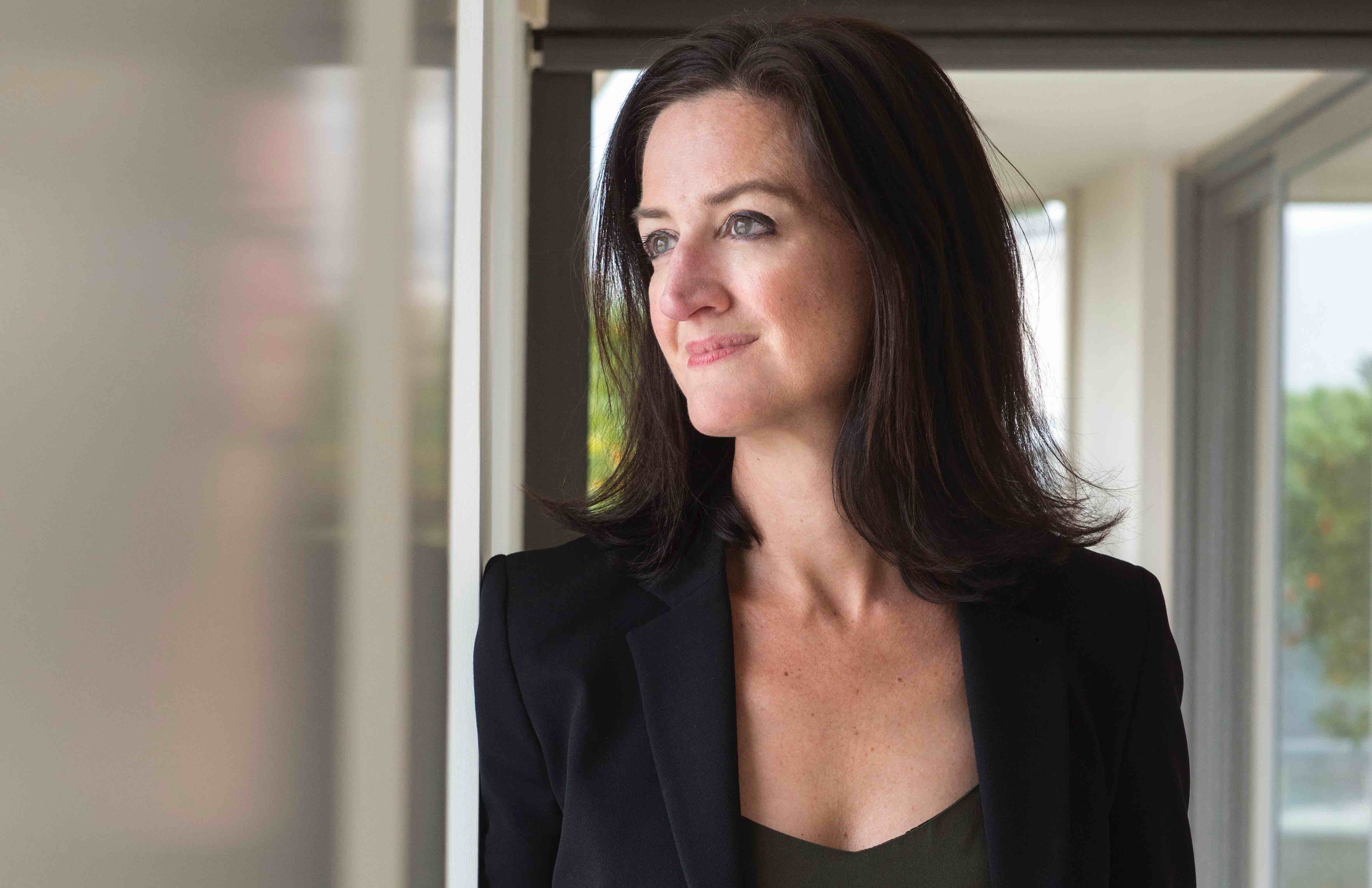Women Act, in collaboration with ACG Institute of Global Affairs, organized an event at Deree College on Tuesday 4th of December, on the topic of “Women in Diplomacy – Challenges and Opportunities for Women in Public Life”. An array of female leaders – H.E. the Ambassador of the United Kingdom, Ms. Kate Smith, H.E. the Ambassador of Sweden, Mrs. Charlotte Sammelin, H.E. the Ambassador of India, Ms. Shamma Jain and H.E. the Ambassador of Australia, Ms. Kate Logan – had the opportunity to discuss current trends and politics for women in public service. The discussion was moderated by professor Haris Vlavianos, Director of the Institute of Global Affairs. The full text of Ambassador Logan’s speech at the event is presented below.
This is brought home to me often when I meet people here and they either walk past me, think I’m the wife of somebody important, or say, very nicely, ‘oh you’re the ambassador!’
I now answer ‘were you expecting somebody else?’ and the answer, quite objectively, is yes.
And the figures bear this out. Globally, women make up only 23 per cent of parliamentarians, 27 per cent of judges and 15 per cent of corporate board members.
In Australia, in my own Department of Foreign Affairs and Trade, we’ve had 50 per cent female recruitment for decades, and an active women in leadership strategy, and still only 37 per cent of our ambassadors are women. I suspect taking all countries into account, the figure is much lower.
So this stuff is not easy. But as I look at all of you here, I see a whole lot of clever young people about to embark on a career of your own – whether it be diplomacy or another facet of public life. I’m thinking you don’t actually need to hear about the barriers to women participating in these professions. I’m thinking you want to hear about how it can be done and how you can make it happen.
I don’t have all the answers, and you will find your own, better answers along the way. But here are some things that I have found useful. I’ll call them my ten practical tips for women in diplomacy.
1. Find and meet and read about as many role models as you can. If you want to work in diplomacy or international security or defence, find out about women who work in those fields already. Because the more women you see and know about in these roles, the more routine it will become for you and other women to take them up and, eventually, the less they will be seen through the prism of gender
– NZ is on to its third female PM and I’m pretty sure people don’t refer to Jacinda Adern as a ‘female leader’ any more.
– Australia has its second female foreign minister, and when she was appointed a few months ago, her gender was barely mentioned.
– For people your age in Australia, I’m not even sure they remember a male foreign minister.
– So over time, women’s participation in these public roles becomes normalised.
2. Don’t feel out of place when, in a professional context, you walk into a room of men. It’s hard – I feel that way often – the imposter syndrome – but try to think of it as your enabling factor rather than a hindrance. Turn it around like this:
– You will stand out. You won’t be one of the million men in a grey suit to start with. People will notice you and come to speak to you and that’s what you want.
– You’ll be better able to develop deeper relationships with senior contacts who are women.
– Even in conservative international environments it can be done – we have women ambassadors in Kabul and Baghdad – and this can be uniquely useful for their visibility as role models in their own right.
3. Don’t believe a word of it when people tell you that you can’t have a career in diplomacy and have a family. It’s nonsense. You will make choices like everyone else but they will be your choices and you will make your own way. You will juggle. You will compromise. But remember that everything is doable.
4. Which brings me to 4. Don’t beat yourself up over little things missed. You may not always do everything perfectly – and I can bore you endlessly with stories about the number of times I’ve forgotten dress-up day at my little boy’s school, or sent him off two days running in the same shirt – but you know, no one remembers, and they love you just the same.
5. Call out bias when you see it. Make people aware of what they’re doing or what they’re saying. Educate them about the benefits of what you’re seeking to do or to change. I don’t mean in an aggressive way or an over-assertive way. I’m talking about encouraging people to see that the view they hold is actually misguided or unfounded or is not going to lead to a better outcome. Slowly you can change attitudes. Deploy humour and charm. Use evidence. Marshall your arguments. It’s called diplomacy.
6. Related to this is 6 – know that every single empirical study shows that diverse teams make better decisions. The more perspectives and ideas you build in to your decision-making, the more sound and robust the outcome is going to be. Just ask the private sector. A well-known recent study in Australia found that companies with a gender balance on boards and in senior positions produce stronger results and higher profits. Case closed. So if you can’t persuade people on logic and equality grounds that more women in public life is a good idea, persuade them on productivity and profit grounds.
7. Bring influential men on board to support you. In Australia we have a program called Male Champions of Change which essentially brings in male CEOs and heads of department to embrace strategies to support women. Because the reality is that unless senior men own it and defend it, it’s not going to happen. And to the young men here starting out on careers soon, I would say – you know where this is headed; it’s no longer feasible to exclude 50 per cent of the population from leadership positions in any field. So get on board early and own the change and be recognised for it in a positive way.
8. Which brings me to number 8 – what a previous Australian foreign minister called ‘having a secret plan’. When Julie Bishop was one of two female Cabinet ministers in an earlier government, she and her colleague hatched a plan to speak up in support of what the other had said in Cabinet meetings. Because you know how annoying it is when you’re in a meeting and you make a suggestion and no one reacts. Then a man makes the same suggestion and everyone says ‘that’s genius’. So the next time you’re in a group and another woman makes a good suggestion, you know what to do.
9. A little shout out to people here that organise panels or participate in panels. Please don’t have manels. We’re doing ok here today, but try and give your panels a balance of male and female voices. Because if people see women speaking publicly, confidently and with authority, then that’s how they’ll regard them.
10. Last of all, I say to you don’t be spooked. One thing this job has taught me is there’s more than one way of doing something. It doesn’t have to be the old-fashioned way of sending formal notes verbales or always following protocol order. There are new and better ways. When I stand behind the Australian flag at events or when I see, at various times, a female Australian prime minister or foreign minister or chief justice or governor-general represent us, I’m proud – because it shows a modern image of my country, a way of doing things that’s agile and innovative and forward-looking. It’s like the ultimate in soft power diplomacy for a country. So my message to you is just go for it.
To read this article in Greek, click here.







